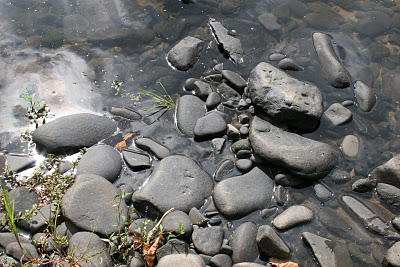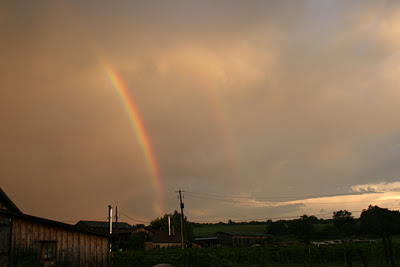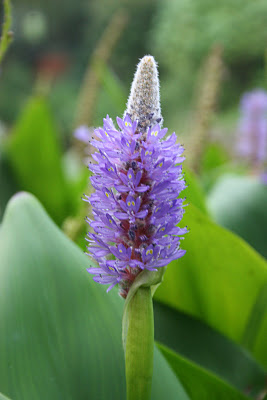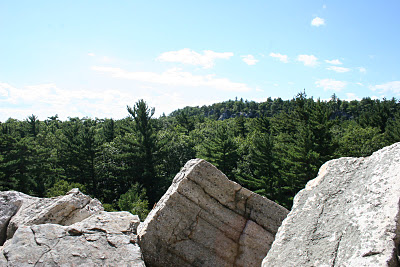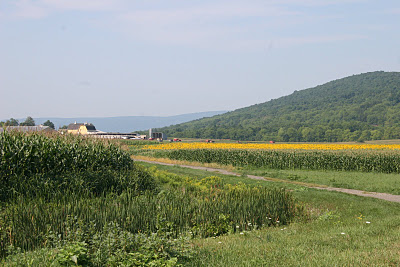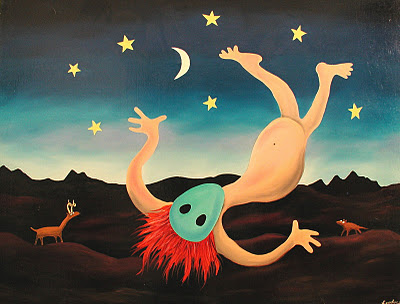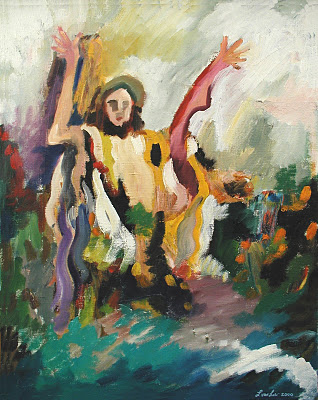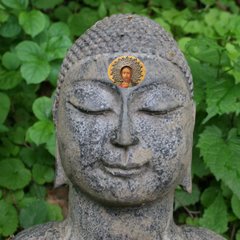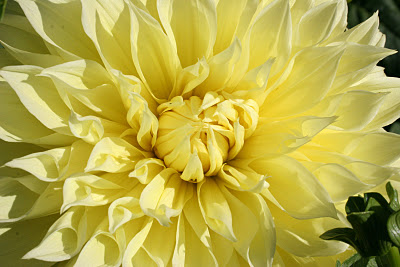 I
am a little off my game. There is a bit of a minor infection in me of
some kind, and it is taking a great deal of my inner energy just to
fight it off. I'm not actually sick, but I can really sense the drain
on my resources to work against whatever virus is active.
I
am a little off my game. There is a bit of a minor infection in me of
some kind, and it is taking a great deal of my inner energy just to
fight it off. I'm not actually sick, but I can really sense the drain
on my resources to work against whatever virus is active.This takes away from what I have available for my inner work, and it reminds me powerfully of the fact that our resources are limited.
We often see failure to work, failure to rise to the spiritual occasion or the moment, as a deficiency. This is a kind of negative thinking; when we do this, we think we are bad, or not trying hard enough, or inadequate in one way or another. Quite probably nothing could be further from the truth. What is happening here is that we do not have the resources at that moment. It is not a matter of deficiency, but of the realistic limitations. The chemistry of the human body can produce only just so much in a given day to support our work.
Thinking negatively about ourselves and criticizing ourselves for the failure to be awake, to be present, is just a form of self-destruction. We are not going to enhance our experience of self if we chip away at it like this.
This morning I was reading chapter 54 of the Shobogenzo, "Hossho"- The Dharma Nature. In it, Dogen deals with the nature of the universe from the viewpoint of Buddhism. One of the things that strikes me about his world view is that the Dharma, that is, reality, or truth, completely encloses and expresses everything. There is no escape from the Dharma; even escape from the Dharma is not escaping.
As I read through this chapter, it struck me that many of the statements that Dogen makes, in which concepts are nested within concepts, turned around upon themselves, and re-nested, are a bit reminiscent of set theory. In expounding cosmology, Dogen expounds relationships and scales.
Let's take an example.
Allow us, for the sake of argument to assume that some things are "good" and other things are "evil." (Yes, I know, this introduces a theoretically unacceptable dualism, but just bear with me.) Within the universe, the set of things that are "good," or, if you will, evolutionary, is infinite. The set of things that are "evil" or involutionary, is also infinite.
We can agree that both the "good" and the "evil" things are true: that is, they exist, regardless of our value judgment about them. This means that the infinite set of things that are "good" and the infinite set of things that are "evil" are part of a larger infinite set of things that are "True."
Thus we demonstrate that the infinite set of Truth is larger than the infinite sets of "good" and "evil."
Truth is a larger infinity. Neat, huh? ...If it appears to you to be no more than an annoying form of sophistry, go complain to the mathematicians. They're the ones who thought this kind of thinking up in the first place.
This weird little thought experiment of "smaller" and "larger" infinities also demonstrates (for stupid 'ol amateur philostopher me, at least) that value judgment automatically diminishes the scale of perception.
Worth pondering, I think.
Yes, Dogen's work is quite difficult, but if one reads it with this idea of set theory in mind, one perhaps begins to see, at least a bit, how he nests sets of ideas within one another as he compares them.
It is really quite beautiful. Sometimes it reminds me of the opening of a flower, where the petals slowly unfold to reveal more and more detail, yet nonetheless always retaining their essential characteristic of being a flower. Every petal of that flower contains its own Truth, yet the set of all petals creates a larger truth called "flower."
Because the essential structure is fractal in nature -- that is to say, every single element is a reflection of the entire system -- the whole universe is contained within each manifestation, no matter how small. Dogen's cosmology accounts for this in asserting the ubiquity and invulnerability of the Dharma.
Once again, this is not so different from Gurdjieff. He himself said that men divide things up with their minds when all they ought to perceive is one single thing. His term for God -- "His Uni-Being Endlessness--" seems to me to neatly cover Dogen's essential concept of the Dharma.
Both of these masters asked us to make efforts to expand our awareness to a point where this is less of a theory, and more of a direct experience we can participate in. And both of them, in their own way, repeatedly call us back to a sense of the physical experience of life as it enters us as the vehicle towards a more unified Being.
Somewhere along the line I picked up a subscription to Shambala magazine, which I like, although it is heavily polluted with a gargantuan pile of spiritual sales pitches. Dharma for sale... tuppence a bag... but, in all fairness, the ads keep the magazine alive, so why should I complain?
Anyway, Pema Chödrön has a very nice and heartfelt article in this month's issue about peace, and the role of Buddhist theory and thinking in the effort to establish a more significant direction of inner peace within the conditions we inhabit. It starts out with a rundown of what Nicoll would have called "keeping accounts" and deftly analyzes a good deal of the psychology that drives both inner and outer conflict. It wraps up by offering some truly practical techniques I have used myself. And it's refreshingly frank about what might be identified as an inherent weakness--the belief system of karmic debt, without which Buddhism might not be Buddhism. ...Weakness, I say, because perhaps it leans a bit too directly on form in pursuit of its aim.
I rather liked the article. At the same time, what seems to me to be missing from this otherwise very good piece on life practice is the understanding of three-centered work (See yesterday's post.) Perhaps it's not fair of me to ask this of the Buddhists--after all, one can hardly argue that the concept (at least in those terms) is a central, or even peripheral, tenet of Buddhist practice per se-- but I can't help but feel, reading Dogen, that somehow that questions does happen to be at the secret heart of all Buddhist effort--
as well as that of the Jews, Muslims, Christians, and, last but never least, Hindus.
If we learn to work within three centers, we slowly begin to lean more on Being and less on form.
This brings a living quality to the pursuit of inner, and outer, peace that does not need to rely on any conventional religious explanations. Instead, it relies on the direct experience of the moment.
May your trees bear fruit, and your wells yield water.


